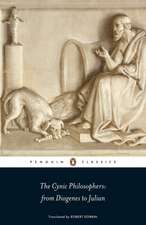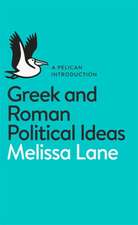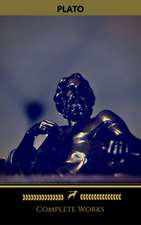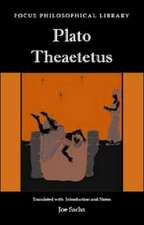Laws
Autor Plato Editat de Hollybook Traducere de Thomas Tayloren Limba Engleză Paperback
| Toate formatele și edițiile | Preț | Express |
|---|---|---|
| Paperback (14) | 70.57 lei 3-5 săpt. | |
| CreateSpace Independent Publishing Platform – | 70.57 lei 3-5 săpt. | |
| Penguin Books – 26 ian 2005 | 81.40 lei 21-33 zile | +31.34 lei 7-13 zile |
| CREATESPACE – | 83.58 lei 3-5 săpt. | |
| – | 98.42 lei 3-5 săpt. | |
| – | 101.17 lei 3-5 săpt. | |
| Hackett Publishing Company – 17 iul 2022 | 146.46 lei 3-5 săpt. | +35.85 lei 7-13 zile |
| CreateSpace Independent Publishing Platform – | 152.66 lei 3-5 săpt. | |
| CREATESPACE – | 158.22 lei 3-5 săpt. | |
| – | 190.92 lei 3-5 săpt. | |
| CREATESPACE – | 221.74 lei 3-5 săpt. | |
| – | 95.57 lei 6-8 săpt. | |
| COSIMO CLASSICS – 31 oct 2008 | 116.84 lei 6-8 săpt. | |
| Akasha Classics – 11 noi 2009 | 165.92 lei 6-8 săpt. | |
| Blurb – 7 feb 2019 | 175.35 lei 38-45 zile | |
| Hardback (3) | 217.06 lei 6-8 săpt. | |
| Hackett Publishing Company – 24 iul 2022 | 406.13 lei 3-5 săpt. | |
| COSIMO CLASSICS – 31 oct 2008 | 217.06 lei 6-8 săpt. | |
| Akasha Classics – 11 noi 2009 | 262.83 lei 6-8 săpt. |
Preț: 152.66 lei
Nou
29.21€ • 30.50$ • 24.18£
Carte disponibilă
Livrare economică 14-28 martie
Specificații
ISBN-10: 1523268751
Pagini: 544
Dimensiuni: 152 x 229 x 28 mm
Greutate: 0.72 kg
Editura: CreateSpace Independent Publishing Platform
Notă biografică
Cuprins
Acknowledgments
Introduction
Utopianism
Plato's Life and Work
Plato's Political Thought
The Republic
The Statesman
The Laws
The Relationship Between the Republic and the Laws
Magnesia: the New Utopia
a. Size and Situation
b. Population and Occupations
c. Education
d. Religion
e. Law
f. Government and Administration
Plato and Totalitarianism
The Modern Reaction to Plato
Composition and Structure of the Laws: Summary
Further ReadingNote on the Translation
The Laws
1. The Inadequacy of Spartan and Cretan Legislation
Introductory Conversation
The Aim of Spartan and Cretan Laws
Courage and Pleasure
2. Drinking Parties as an Educational Device
Teetotallers Misguided
Can Drinking Parties be Educational?
Interlude: The Athenian Pressed for an Answer
The Nature and Purpose of Education
The Educational Effect of Drinking Parties
3. The Arts in the Service of Education
The Nature and Purpose of Education
how the Arts should reinforce Education
Is Pleasure the Proper Criterion in the Arts?
Artistic Censorship in Egypt
Justice and Happiness for Together
Children are Easily Persuaded
The Three Choruses
Qualifications of the Third Chorus, and an Attack on Contemporary Trends in the Arts
The Educational Effects of Drinking Parties
Summing-up on the Uses of Drink
4. The Lessons of History: Legislation and the Balance of Powers
Life after the Flood
Autocracy
The Primitive City and the Origin of Legislation
Troy
The Dorian League
Why did the League Fail?
Seven Titles to Authority
The Reasons for Sparta's Success
5. The Lessons of History (2): Monarchy and Democracy
Two Mother-Constitutions
The Persian Monarchy
Athens and the Persian Wars
The Corruption of the Athenian Democracy
Recapitulation
The Proposed New Cretan Colony
6. Magnesia and Its People
Natural Resources
The Colonists
The Need for a Benevolent Dictator
What Constitution is to be Imposed?
The Age of Cronus
Law should be Supreme
Address to the New Colonists
7. The Correct way to Legislate: Laws and Preambles
Introduction
Physical Fitness
Wealth
The Correct Treatment of Children
Duties to Relatives, Friends and State
Duties to Foreigners
Personal Morality
How to Handle Criminals
Selfishness
Extremes of Emotion to be Avoided
Virtue and Happiness
9. The Foundation of the New State
Preliminary Analysis of the State
The Selection of the Citizens
Distributing the Land (1)
The Size of the Population (1)
Religious and Social Occasions
States Ideal and Real: Community of Property
Distributing the Land (2)
The Size of the Population (2)
Holdings are Inalienable
The Possession of Money
The Four Property-Classes
Administrative Units of the State
Theory to be Modified by Facts
The Pre-eminence of Mathematics
Influences of Climate
10. Civil and Legal Administration
Problems of Appointing the First Officials
The Election of the Guardians of the Laws
Duties and Tenure of the Guardians; Registration of Property
Military Officials
Generals
Company-Commanders
The Elections
Cavalry-Commanders
Disrupted Votes
The Election of the Council
The Notion of Equality
The Executive Committee of the Council
Other Officials; Priests
The Election of the Expounders
Tresurers
The Protection of the Territory
The Rural Courts
How the Country-Wardens are to Live
The City-Wardens
The Market-Wardens
Education Officals
The Minister of Education
Death in Office
Three Grades of Court
Election of the Supreme Court
Corrupt Verdicts
The Court of the People
The Tribal Courts
Our Scheme is only a Sketch
11. Marriage and Related Topics
The Younger Legislators
The Organization of Religious Festivals
Marriage: Choosing a Partner (1)
Changing the Laws
The Law of Marriage
Preamble to the Law of Marriage: Choosing a Partner (2)
Failure to Marry
Dowries
The Wedding-Feast
Correct Procreation (1)
The Life of the Newly-Weds
The Problem of Slavery
The Buildings of the State
Women must join the Communal Meals
Three Instictive Drives: Food, Drink, Sex
Correct Procreation
Adultery
Registration of Births and Deaths
Age Limits
12. Education
Written and Unwritten Rules
Education in the Womb
The Importance of Movement: the Evidence of Corybantic Ritual
how far should a Child be Humoured?
Unwritten Rules: a Reminder
Early Education
Ambidexterity
Physical Training (1)
The Dangers of Innovation in Education
Come Model Rules
The Regulation of Music
The Right Use of Leisure
Attendance at School
The Education of Females
How to Live a life of Leisure
Further Duties of the Minister of Education
The Legislator's Instuctions to the Minister of Education: the Curriculum
Literature
A Set Text: Selections from the Laws of Plato
Music
Comedy and Tragedy
Mathematics
Astronomy
Hunting: Written and Unwritten Rules again
13. Sport and Military Training
Arrangements for Festivals
Military Training
Obstacles to Correct Military Training
Races
Contests in Arms
Horse-Racing
Conclusion
14. Problems of Sexual Conduct
The Problems Stated
Three Kinds of Friendship
How to Discourage Unnatural Sexual Intercourse
The Importance of Self-Control
Two Alternative Laws
15. Agriculture, Economics and Trade
The Food Supply
Agricultural Laws
Duties to Neighbors
The Water Supply (1)
The harvest
The Water Supply (2)
Bringing in Crops
Artisans
Imports and Exports
The Food Supply (2)
Dwelling Houses
The Markets
Resident Aliens
16. Capital Offences
Preliminary Discussion
Robbery from Temples
Procedure in Capital Cases
Subversion
Treason
17. The Theory of Punishment
Theft: Should all Thefts Attract the Same Punichment?
Philosophical Legislation Justified
A 'Terminological Inexactitude'
The Attack on the Distinction between 'Voluntary' and 'Involuntary'
The New Distinction, and the Purpose of Punichment
A Fuller Account of Injustice
18. Homicide Law
Persons Unfit to Plead
Involuntary Homicide
Homicide in Anger
Voluntary Homicide
Suicide
Animals and Inanimate Objects as Killers
Murder by Persons Unknown
Justifiable Homicide
19. Woundings
Preliminaries
The Courts' Discretion
Voluntary Wounding, and a Digression on Adopting an Heir in Cases of Childlessness
Woundings Inflicted in Anger
Involuntary Woundings
20. Assault
21. Religion
Three Sources of Impiety
The Case of the Opposition
Address to the Young Heretic
Nature and Chance versus Design
The Difficulties of Refuting Atheists
The Priority of Soul (1)
Ten Kinds of Motion
Soul Moves Itself
The Priority of Soul (2)
Soul moves the Heavenly Bodies
Address to the Believer in the Indifference of the Gods
Proof that the Gods care for Mankind
The Justice of the Gods, and the Fate of the Soul
Transition to the Law of Impiety
Two Kinds of Offenders
The Punishment for Impiety
Private Shrines
22. The Law of Property
Respect for Property
Removal of Buried Treasure
Removal of Property in General
The Treatment of Slaves and Freedom
23. Commercial Law
The Law of Sale and Exchange
Retail Trade
Contracts
Dealings with Craftsmen
Military 'Craftsmen'
24. Family Law
Making a Will
Testamentary and Inheritance Law
How to Mitigate the Harshness of the Law
The Care of Orphans
Disinheritance
Senility
Divorce and Remarriage
Death of a Wife or Husband
Children of Mixed Status
Respect for Parents
25. Miscellaneous Legislation
Non-fatal Injuries by Drugs and Charms
The Purpose of Punishment
Lunacy
Abuse
The Censorship of Comedies
Beggars
Damage by Slaves
Further Rules of Legal Procedure
Unscrupulous Advocacy
Offences Committed by Members of Diplomatic Missions
Theft of Public Property
Military Service
Abandonment of Weapons
The Need for Scrutineers
The Funeral of a Scrutineer
Prosecutions of Scrutineers
Oaths
Refusal to Contribute to Public Expenses
Relations with the Outside World
Foreign Travel
The Observers
Foriegn Visitors
Sureties
Searching a House
Time Limits for Disputing Title
Prevention of Attendance at Court
Prevention of Participation in Contests
Receiving Stolen Goods
Harbouring an Exile
Waging Private War
Bribes
Taxation
Offerings to the Gods
The Three Grades of Court
The Minor Points of Legal Procedure, and the Importance of Legal Studies
The Execution of Judgement
Funeral Regulations
26. The Nocturnal Council
How can the State be Preserved Intact?
Membership and Functions of the Council
The Unity and Plurality of Virtue
The Council's Duty to Teach
The Higher Education of the Council
The Importance of Theology
Recruitment of the Council, and its Course of Studies
Closing Remarks
Departures from the Budé Text
Map of Central Crete
List of Crimes
Appendix: Plato's Letters
Notes
Index of Names
Descriere
In the Laws, Plato describes in fascinating detail a comprehensive system of legislation in a small agricultural utopia he named Magnesia.



















